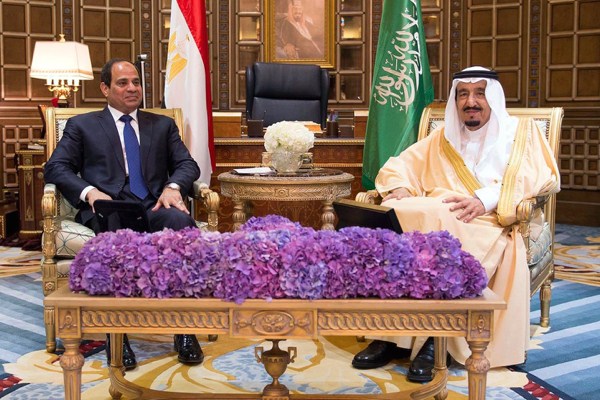While Egyptian President Abdel-Fattah el-Sisi has his eyes on Yemen, with plans apparently hatched to commit Egyptian troops to a possible Saudi-led ground invasion there, the Sinai Peninsula still smolders. Last Thursday, militants attacked checkpoints in the northern Sinai near the Israel-Gaza border, killing 15 soldiers and two civilians.
Threats to Egypt’s domestic security linger, but last week, el-Sisi said that Egypt was involved in Saudi Arabia’s campaign against Houthi rebels in Yemen because “it was not possible for us to abandon the security of the Gulf.” That being said, Saudi Arabia and its fellow members of the Gulf Cooperation Council (GCC), including the United Arab Emirates and Kuwait, have underwritten el-Sisi’s rise with tens of billions of dollars in aid to Egypt; in effect, he owes them. And after a strange and oddly underreported scandal earlier this year over leaked recordings of el-Sisi and his generals mocking their Gulf patrons, Egypt’s strongman has all the more reason to remain in lockstep with the oil-rich and increasingly assertive monarchies.
That partly accounts for why el-Sisi has taken the lead in promoting the creation of a joint Arab military force, a would-be Arab NATO. But what does el-Sisi really have to gain from a coalition force that, if the Saudi campaign in Yemen is any indication, could be dominated by Gulf agendas? For that matter, what does el-Sisi have to gain from committing Egyptian ships and possibly troops to Yemen, a country where former Egyptian President Gamal Abdel Nasser got bogged down in the 1960s and where 26,000 Egyptian soldiers died?

